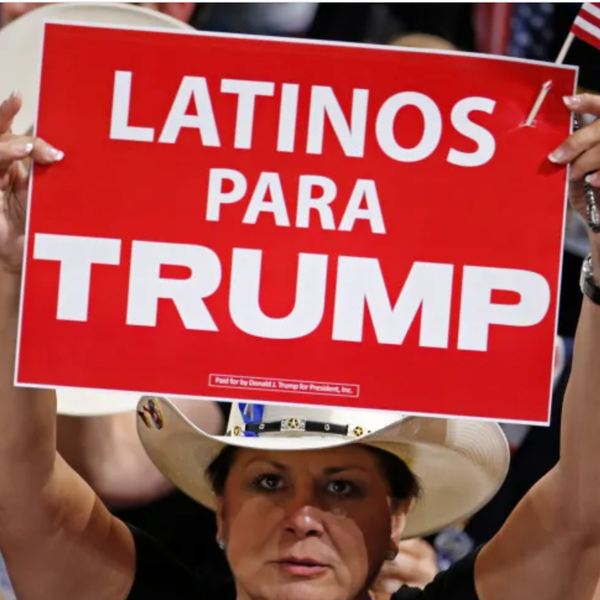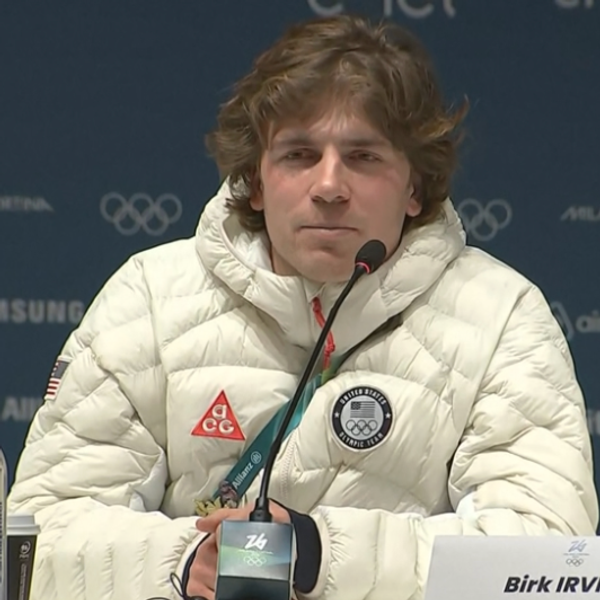
Gov. Ron DeSantis
Several Republican governors responded to the campaign by Donald Trump and his right-wing media allies to undermine the credibility of the 2020 election by signing bills making it more difficult to vote. But Florida’s Ron DeSantis stood out from the pack thanks to the unique venue for his May 2021 signing ceremony: a live, exclusive appearance in front of a cheering crowd of supporters on Fox & Friends, the Fox News morning show beloved by the former president.
DeSantis’ rise to political prominence shows how a canny politician attuned to the right-wing press can use its power to become a plausible presidential contender. But the collapse of his presidential campaign, which came to an end when he endorsed Trump on Sunday before the New Hampshire primary, demonstrates the limitations of such a strategy given the right-wing media imperative to support Trump.
DeSantis first won the governorship in 2018 by running a “Fox first campaign.” When he announced his candidacy — on Fox & Friends, naturally —- he was an undistinguished House backbencher in his third term facing an uphill climb in the GOP primary against a candidate who already held statewide office and had locked up the support of the state’s party establishment. DeSantis countered those advantages by staying in front of Florida’s GOP voters on their favorite right-wing TV channels. He made more than 100 appearances on Fox News and Fox Business — winning Trump’s endorsement with his on-air defenses of the then-president from the Russia probe — and touted his support from Fox hosts Mark Levin and Sean Hannity, the latter of whom appeared with him on the campaign trail.
As governor, DeSantis became a star in the right-wing media by fixating on its obsessions and using state power to cudgel its foes. He first drew plaudits for his lax handling of the COVID-19 pandemic, which mimicked the response from Fox hosts and other influential figures downplaying the danger posed by the virus. And after the right responded to Trump’s defeat by refocusing its ire on “critical race theory” and other examples of “wokeness,” DeSantis made those topics the linchpin of his policy agenda. While Fox hosts bemoaned “groomer” public school educators and “woke” universities and entertainment companies, DeSantis signed laws weaponizing his base against the state’s teachers, put right-wing ideologues in command of one of its colleges, and went to war with Disney.
DeSantis’ popularity with Fox hosts and other influential figures in right-wing media made him seem like a plausible contender for president, particularly after his 2022 reelection. He benefited from the support of Rupert Murdoch, who hoped to move past Trump after the horrors of January 6, and anti-anti-Trump figures at outlets like The Daily Wire and National Review, who preferred that Trump not return as the GOP’s presidential nominee. DeSantis sought to stoke that support by giving privileged access to right-wing influencers while freezing out the mainstream press.
But DeSantis’ disastrous presidential announcement — an interview with Elon Musk in a glitchy Twitter Spaces, followed by a Q&A with the right-wing media influencers in attendance that focused on their picayune concerns — was somehow the campaign’s high-water mark. The various accounts of his campaign’s demise point to a slew of reasons he never caught on with Republican voters, but two factors point to the limitations of his right-wing media-focused strategy.
First, DeSantis garnered support from the right-wing press and their audiences by focusing on their grievances and obsessions. But those focuses did not help him grow national support, either because they were no longer major forward-looking political issues, like pandemic response, or because they were niche concerns that were alien to normal people, like his self-identification as a general in the “war on woke.”
Second, Fox’s stars — the most influential in the right-wing media constellation — might like DeSantis, but they are dependent on Trump and his supporters, who make up their audiences. They never broke with the former president; the cult of personality they built for him made it virtually impossible for his rivals to gain traction; and once federal and state prosecutors began indicting Trump on various charges, their ongoing support was crucial in securing his unassailable position. And they did not come to DeSantis’ aid when he came under fire from Trump — even on ludicrous claims, such as Trump’s attempt to brand DeSantis as a “groomer.” Before the first GOP primary votes had been cast, Fox hosts were already preparing a return to their role as Trump’s personal propaganda outlet.
DeSantis spent the final days of his campaign complaining that Fox hadn’t been willing to take on Trump, and drawing attention to one of the few avenues for criticizing him the network hadn’t preempted — the former president’s role in ensuring the development of COVID-19 vaccines. It was a fitting conclusion for a presidential bid that rose and fell on its relationship with the right-wing media.
Reprinted with permission from Media Matters.
- Fox's Ingraham Is Already Promoting 2024 Election Denial Lies ›
- Studies: Trump's Fake COVID 'Cure' Killed Nearly 17,000 Americans(VIDEO) ›
- The 'Woke' Satire Of Jonathan Swift Stings Ron DeSantis Where It Hurts ›
- Fox Glosses Over Millions Paid To Trump By Foreign Regimes ›
- It's All Over: Fox Submits To Trump While DeSantis Whines ›








